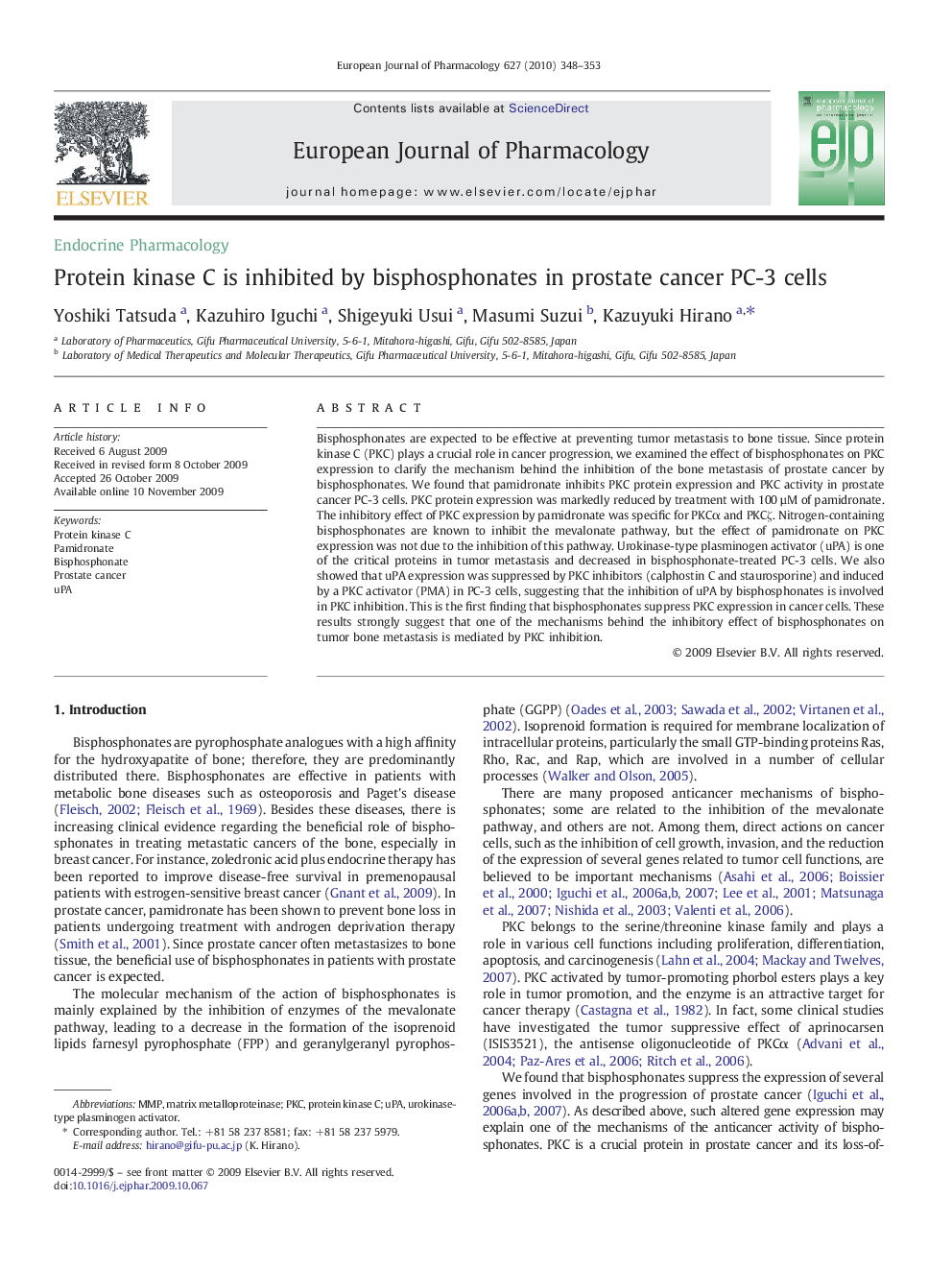| Article ID | Journal | Published Year | Pages | File Type |
|---|---|---|---|---|
| 2533788 | European Journal of Pharmacology | 2010 | 6 Pages |
Bisphosphonates are expected to be effective at preventing tumor metastasis to bone tissue. Since protein kinase C (PKC) plays a crucial role in cancer progression, we examined the effect of bisphosphonates on PKC expression to clarify the mechanism behind the inhibition of the bone metastasis of prostate cancer by bisphosphonates. We found that pamidronate inhibits PKC protein expression and PKC activity in prostate cancer PC-3 cells. PKC protein expression was markedly reduced by treatment with 100 µM of pamidronate. The inhibitory effect of PKC expression by pamidronate was specific for PKCα and PKCζ. Nitrogen-containing bisphosphonates are known to inhibit the mevalonate pathway, but the effect of pamidronate on PKC expression was not due to the inhibition of this pathway. Urokinase-type plasminogen activator (uPA) is one of the critical proteins in tumor metastasis and decreased in bisphosphonate-treated PC-3 cells. We also showed that uPA expression was suppressed by PKC inhibitors (calphostin C and staurosporine) and induced by a PKC activator (PMA) in PC-3 cells, suggesting that the inhibition of uPA by bisphosphonates is involved in PKC inhibition. This is the first finding that bisphosphonates suppress PKC expression in cancer cells. These results strongly suggest that one of the mechanisms behind the inhibitory effect of bisphosphonates on tumor bone metastasis is mediated by PKC inhibition.
